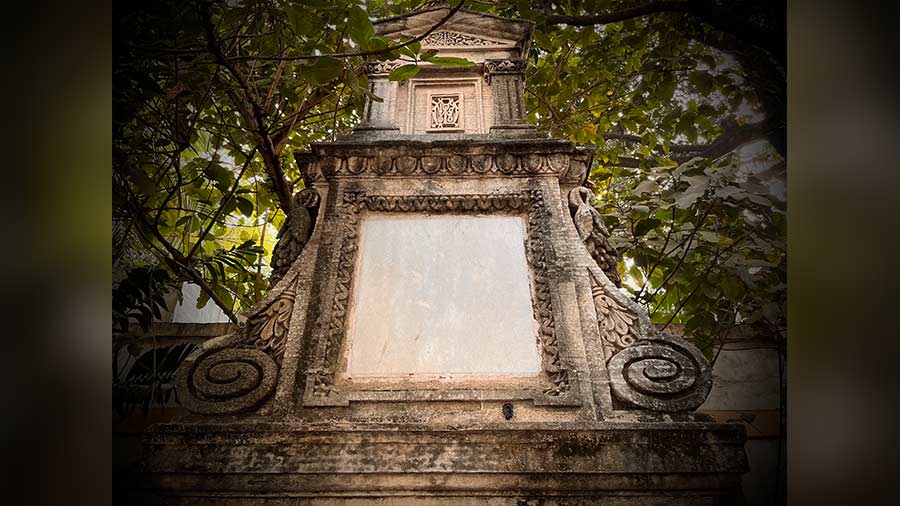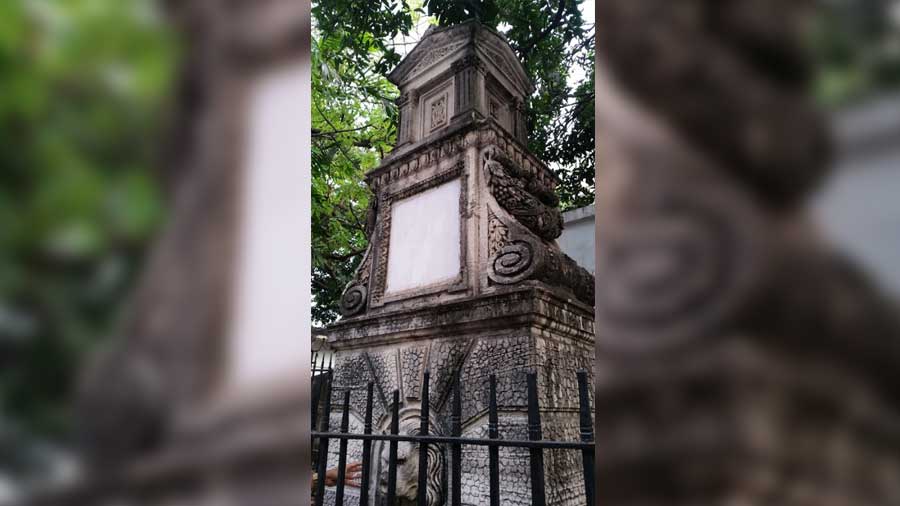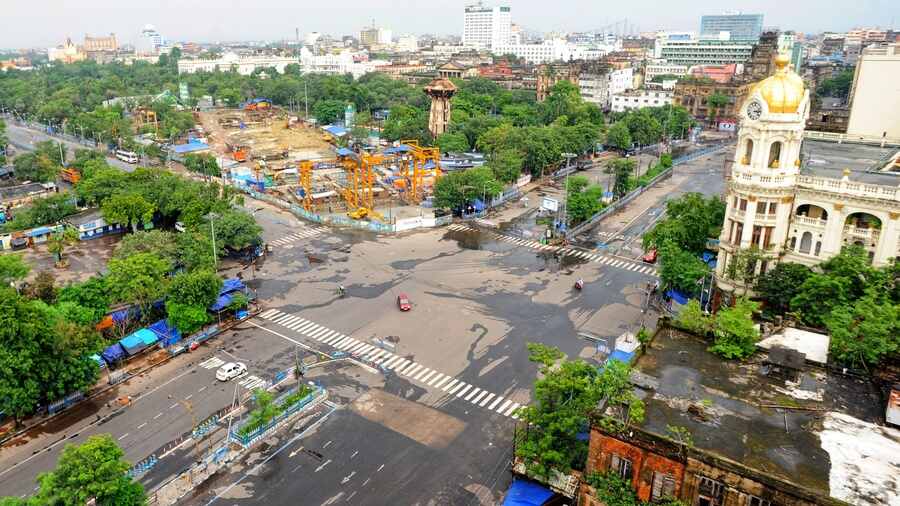Barely 100 metres from the main entrance of Calcutta High Court on Esplanade Row is a drinking fountain erected in 1894 as a tribute to William Fraser McDonnell, a former judge of the court. A fine specimen of the Victorian Gothic revivalist style, the inscription on the fountain’s white marble plaque once spoke of the “manly rectitude and kindly disposition” shown by Justice McDonell. It has long since faded.
When the fountain was in use, water spouted from a bronze pipe in the lion’s mouth and fell into the trough. After a busy day ferrying judges, lawyers, and litigants to-and-from the high court in carriages, this is where horses quenched their thirst. Given McDonell’s long tenure as a steward of the Calcutta Turf Club, the premier horse racing club in the subcontinent, a drinking fountain for horses is an appropriate memorial. Perhaps this is why it was constructed.
The fountain is in a sorry state — stained, broken, faded, and totally forgotten
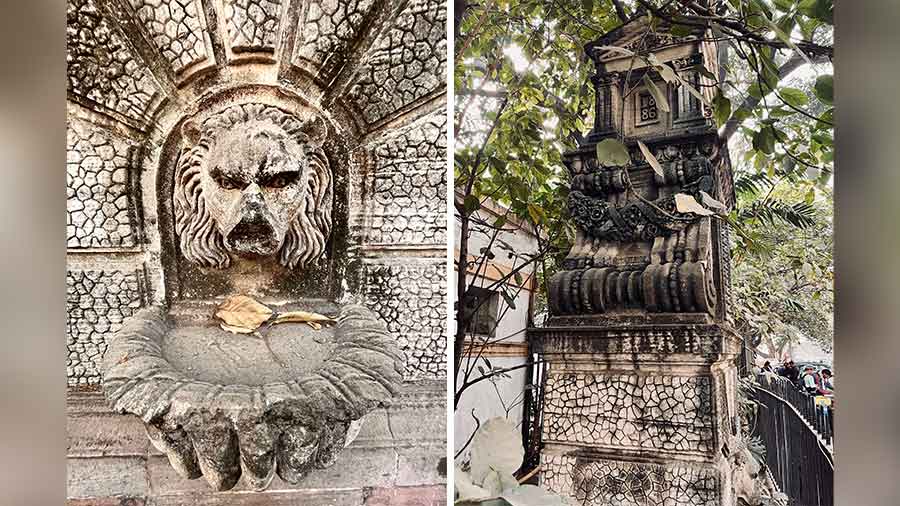
Passers-by can seldom make the connection with McDonnell after seeing the fountain these days Aditya Prasanna Bhattacharya
Today, however, the fountain hides behind row after row of tightly parked sedans. Horse-drawn carriages have been replaced with horse-powered cars. The fountain is in a sorry state — stained, broken, faded, and totally forgotten. Behind it is a public toilet and facing it is a parking lot. With the inscription on the marble plaque now gone, it is impossible for passers-by to make the connection with Justice McDonell.
Writing in 1966, artist-photographer-writer-editor Desmond Doig lamented that “only dismantling the fountain completely could have done more to hide it from view”. Over half a century has passed since that comment, but some things just never change.
Besides having this fountain dedicated to him, McDonell led a remarkably eventful life. Born in Gloucestershire, England in December 1829, he completed his education at Cheltenham College, received specialised training at East India College, Hailey, and eventually joined the Bengal Civil Service in 1850. Initially, he was posted as the Assistant Magistrate of the Saran district in Bihar. In 1855, he took charge as the Magistrate.
McDonnell’s heroic moment
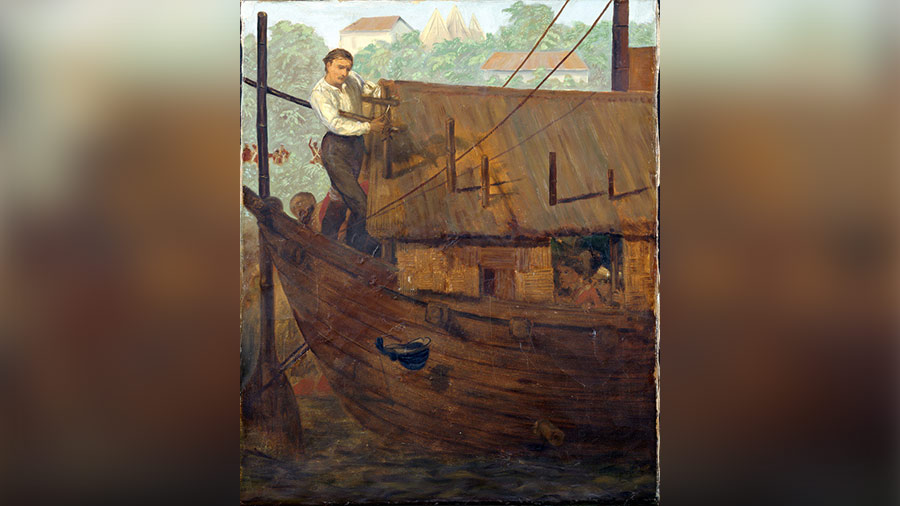
An oil painting depicting McDonnell’s rescue act National Army Museum
With the outbreak of the Indian Rebellion of 1857, civilian officers were invited to take up arms and join the British resistance. It was almost as if this was the chance that McDonnell had been waiting for. On July 30, 1857, he joined a motley relief party of soldiers and civilians. Their objective was straightforward — reclaim the strategic outpost of Arrah (in Bihar) from the sepoys.
The attempt was a failure. After suffering heavy casualties (including the death of the commanding officer Captain Charles Dunbar), the party decided to beat a hasty retreat. With the sepoys in hot pursuit, McDonnell & Co. jumped on a boat moored on the banks of the Son (a southern tributary of the Ganga). Under relentless musket fire from the approaching sepoys, the boat was readied for departure. Suddenly, the survivors came to a shocking realisation. In their haste, they had simply forgotten to untie the rudder. As long as the rudder was bound, the boat would be totally unnavigable. Seeing this from a distance, one can imagine the sepoys letting out a cry of jubilation and advancing towards the boat, raining hellfire with their muskets.
As his colleagues prepared to meet their maker, a 27-year-old McDonell took things into his own hands. Under incessant fire, he emerged on the deck, and with nothing more than a small knife, began to scythe through the lashing. The rudder was freed, and the party of 35 managed to escape certain death. For this remarkable act of bravery, McDonell was vested with the Victoria Cross, the UK’s premier operational gallantry award, in 1860. In its 167-year history, only seven civilians have been invested with the Victoria Cross. McDonnell was the second. His medal is on display at the Lord Ashcroft Gallery in the Imperial War Museum, London. You can find out more about the colourful history of the Victoria Cross here.
The last years
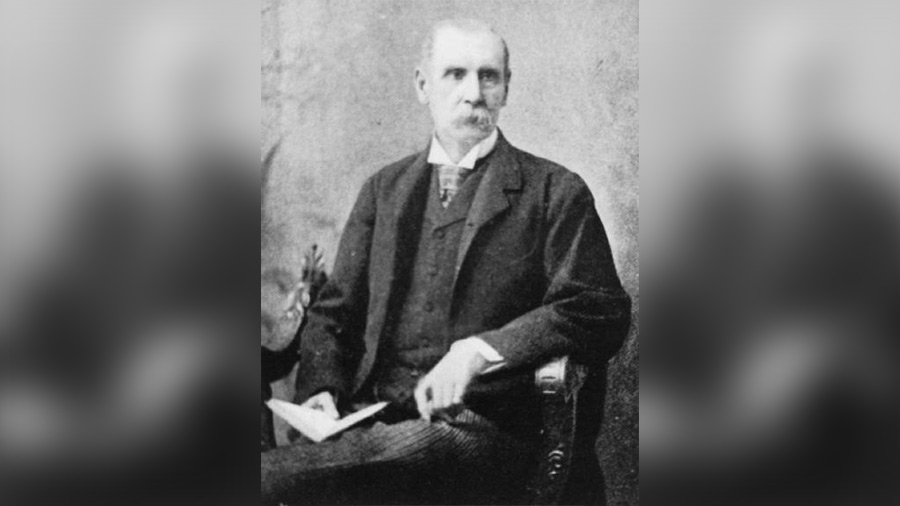
After his retirement in India, McDonnell went back to England to become Governor of Cheltenham College Wikimedia Commons
Back in India with a medal on his chest and a spring in his step, McDonnell served as a Magistrate in the Nadia district and then as a judge in Patna. In 1874, he was elevated to Calcutta High Court, where he served with distinction until 1886.
Even after retirement, McDonnell was not one to retire from public life. Upon returning to England, he took up the position of Governor at Cheltenham College. In 1894, he caught a cold while spectating a cricket match, fell victim to pneumonia and breathed his last.
On a daily basis, throngs of citizens seeking justice walk through the portals of Calcutta High Court. Most casually stroll past the fountain, probably dismissing it as just another colonial relic. The next time you have the occasion to make your way down Esplanade Row, spare a thought for Justice William Fraser McDonnell.
